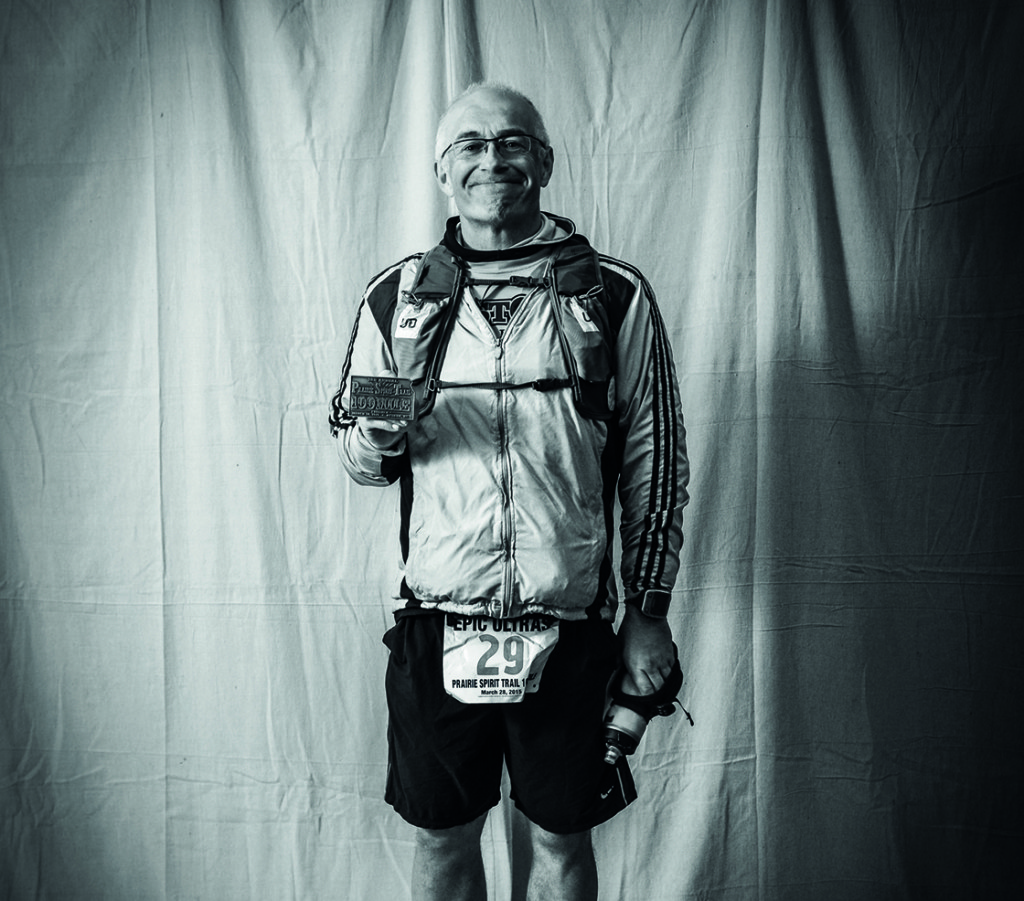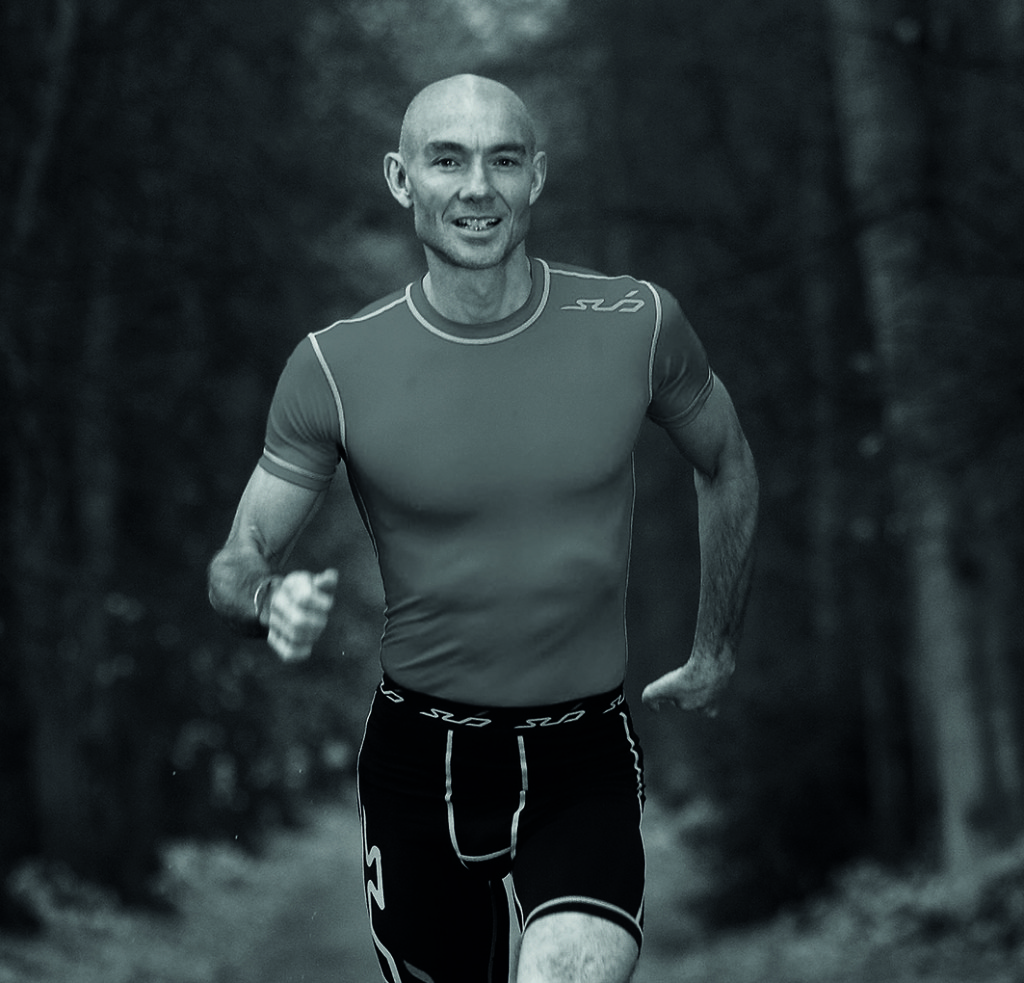There’s more to marathon running than the big events in major cities, and there’s a hardcore group of obsessives who will travel to every far-flung corner of the UK – and beyond – to run races midweek, sometimes back to back, with just a few like-minded hardy souls and the elements for company.
We all love running – that’s why we’re here – but this seems a little excessive. How on earth do you end up becoming hooked on 26.2-milers to the point where you’re prepared to devote your life to the search for just one more finish line?
Traviss Willcox, chairman of the 100 Marathon Club, has completed an eye-watering, knee-trembling, 372 marathons since 2009, but his hobby had humble beginnings. “My girlfriend wanted to run the London Marathon but had nobody to train with so I volunteered. In the end, she didn’t get in to London but we signed up for another and it all went from there.” But while Willcox and the members of his club – which is actually open to people who have completed at least 50 marathons – have nothing against the big city races, there’s just a sense that they revel in the smaller events that most London runners have never even heard of.
“The most obscure, I think, are midweek marathons around lakes in Milton Keynes,” says Glen Keegan, who has completed more than 80 marathons. “I’ve done track ones, I’ve done a marathon in Namibia, but wet evenings in Milton Keynes are… not the least pleasant, but the least inviting.”
There are rules, though – you can’t just strap on a number and run for 26.2 miles. “The smallest entry in the marathons I’ve run is in the high twenties,” says Willcox. “The 100 Marathon Club defines a marathon as having at least 25 finishers so I wouldn’t do anything below that.”
 Traviss Willcox of the 100 Marathon Club
Traviss Willcox of the 100 Marathon Club
Bad romance
The good news is that there are many weird and wonderful races to choose from, and you can find a list at 100marathonclub.org.uk. Upcoming examples include the Valentine’s Day Marathon, whose organiser ponders, “What better way to treat your loved one than to run around with them in the delightful surrounds of Gravesend, the M2 and the High Speed rail link in the middle of chilly February?”
While the tongue is planted firmly in cheek here, it does beg the question: why? “I don’t think anyone necessarily enjoys running a marathon – it’s too painful,” says Steve Edwards, who has completed over 700 marathons in an average time of 3:17. “I guess I do it because I can – it’s there to be done and ultimately it’s another one towards achieving my ambition of a world-record 1,000 marathons averaging a sub-3:20 finish time for each one.” Even in some obscure UK town on a wet and windy Tuesday night? “In the UK its mainly the camaraderie of sharing a run with like-minded folk,” says Willcox.

Steve Edwards
And those are the two key points in the view of Andy Lane, professor of sports psychology at the University of Wolverhampton. “The marathon is a challenge every week for these runners, and one they know they can do. The sort of people who like doing it are the ones who like collecting numbers. But for ultra and multi-marathon runners it’s awfully social. They help and support each other along the way. It’s a very friendly environment.”
Out of control?
Is it an addiction? “To a degree, yes,” says Willcox. “FOMO – fear of missing out – is a big thing. We all want to do the nice races and get the nice medals.” Edwards isn’t so sure: “I like to think of it as dedication. Back in 1988 I had an ambition to try and become one of the most successful multi-marathon runners in the world, not just running quantity but also trying to run respectable finish times. I never forget seeing in a magazine once: ‘Addicted is a word the lazy use to describe the dedicated’, and I thought that was brilliant.” And Keegan disagrees completely: “I think the definition of addiction is if it’s harmful. I’m in my fifties and I think being able to run five marathons a week is pretty healthy.”
Lane puts it into perspective: “There are lots of people who run for two hours every Sunday. The 100 Club runners don’t train so hard so they go to every marathon fresh. And in many cases they’re not trying to beat their own personal bests – they’re just trying to get that positive experience every week.” Behind every multi-marathon runner there would appear to be a supportive and long-suffering family. Edwards’ wife travels with him to every race, while Keegan says, “Weekday marathons are the best because they don’t interfere with family life as much. That said, they do tend to roll their eyes – ‘Here he goes again’. Although the parents of my childrens’ friends all know about my running, so deep down my kids must be fairly proud.” But perhaps Willcox sums it up best: “They think I’m an idiot.”







